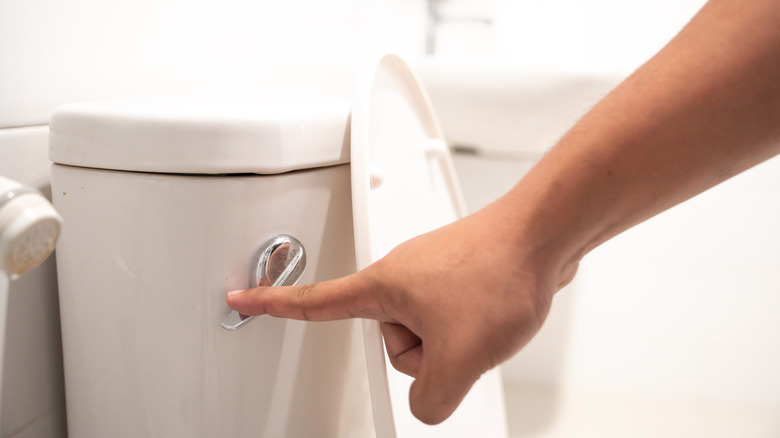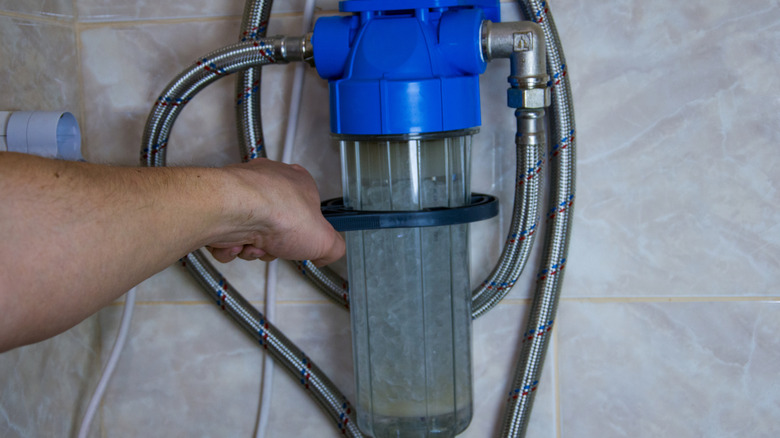Say Goodbye To Hard Water Stains In Your Toilet With One Simple Preventative Fix
If you live in a region that has hard water, you're most likely no stranger to the signs it leaves behind in your sink, bathtub, shower, and especially your toilet. But did you know hard water may be doing more than just leaving stains behind? It could actually be harming your plumbing, your appliances, and your toilet's inner mechanisms. Hard water deposits are caused by the minerals in your water — usually calcium, iron, and magnesium. They can leave build-up and stains in your toilet that seem impossible to get rid of. There are some essential steps to cleaning your toilet the right way, but they won't necessarily get rid of the hard water stains. That's where preventative measures come into play.
If you find your toilet is starting to have issues — parts breaking down, stains that won't go away, and a chalky residue forming inside the bowl, hard water may be the cause of your toilet's problems. While both hard water and soft water can pose their own unique challenges for a homeowner, hard water comes with the added struggle of leaving deposits and stains on everything. The best thing you can do is prevention to reduce the risk that excessive minerals pose to your toilet and other appliances. You can clean weekly with special high acidity cleaners or pumice stones and that can help, but ultimately, it's best to fix the issue at the source — your home's main water line.
How a water softener can prevent hard water stains in your toilet and more
The best way to say goodbye to hard water stains and issues in your toilet for good is to get a water softener. Preventing the issue before it happens is always a better option, plus it will save you from headaches and expensive plumbing concerns in the long run. Although it's a good idea to clean your toilet weekly anyway, the issue that's causing the staining and buildup isn't getting fixed. Honestly, it's just a band-aid solution. While purchasing a water softener system for your home might seem expensive initially, it will save you money in costly repairs in the end.
A water softener system should be connected to your pipes before they enter your home or water heater — this will prevent damage and mineral accumulation in it as well. There are two main types of water softener systems — salt and non-salt. Knowing how hard your water is and how much water your household uses in a day will help you determine which system is best for you. Some hardware stores offer services to test how hard your water is, but you could reach out to a local water service, or call a plumber to consult. If you're a DIYer, a couple of the options shouldn't be too hard to install, which can save you a little extra money on installation costs. Whatever you choose will ensure you no longer have to struggle with unsightly hard water stains or build-up in your toilet.

